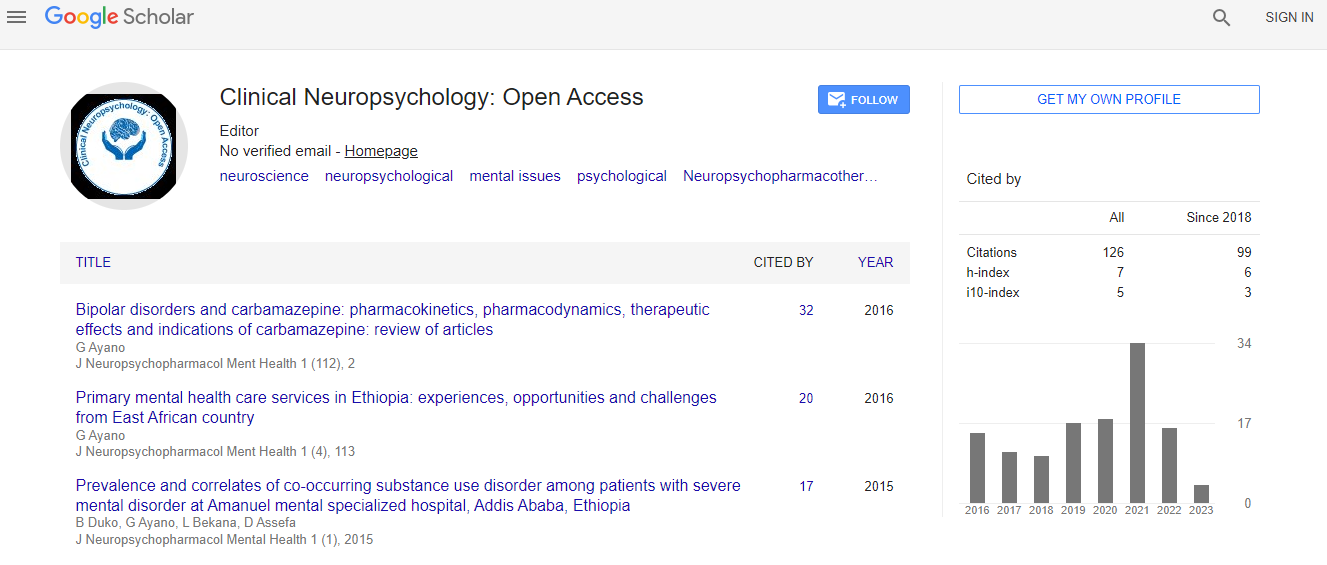Our Group organises 3000+ Global Conferenceseries Events every year across USA, Europe & Asia with support from 1000 more scientific Societies and Publishes 700+ Open Access Journals which contains over 50000 eminent personalities, reputed scientists as editorial board members.
Open Access Journals gaining more Readers and Citations
700 Journals and 15,000,000 Readers Each Journal is getting 25,000+ Readers
Google Scholar citation report
Citations : 141
Clinical Neuropsychology: Open Access received 141 citations as per Google Scholar report
Indexed In
- Google Scholar
- RefSeek
- Hamdard University
- EBSCO A-Z
- OCLC- WorldCat
Useful Links
Recommended Journals
Related Subjects
Share This Page
Structural and functional MRI correlates of post stroke depressionq
8th Global Experts Meeting on Advances in Neurology and Neuropsychiatry
Wai Kwong Tang
Chinese University of Hong Kong, Hong Kong
Keynote: ClinNeuropsychol
Abstract
Many stroke survivors suffer from depression. Post Stroke Depression (PSD) adversely effects on the recovery and rehabilitation of stroke survivors. The frequency of PSD remained high in both acute and chronic stroke patients. Possible structural correlates of PSD include cerebral microbleeds, lacunar infarcts and white matter changes. Functional changes in several brain networks, such as the default mode network and the affective network have been reported in PSD. Latest findings on the link between structural and functional brain changes and PSD will be discussed.Biography
Wai Kwong Tang was a Professor in the Department of Psychiatry, the Chinese University of Hong Kong. His main research areas are addictions and neuropsychiatry in stroke. He has published over 100 papers in renowned journals and has also contributed to the peer review of 40 journals. He has secured over 20 major competitive research grants, including Health and Medical Research Fund. He is the Editorial Board Member for five scientific journals.
E-mail: tangwk@cuhk.edu.hk

 Spanish
Spanish  Chinese
Chinese  Russian
Russian  German
German  French
French  Japanese
Japanese  Portuguese
Portuguese  Hindi
Hindi 